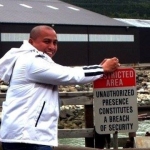
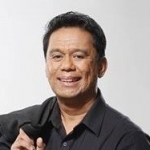
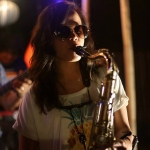
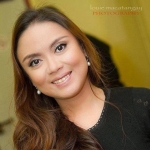
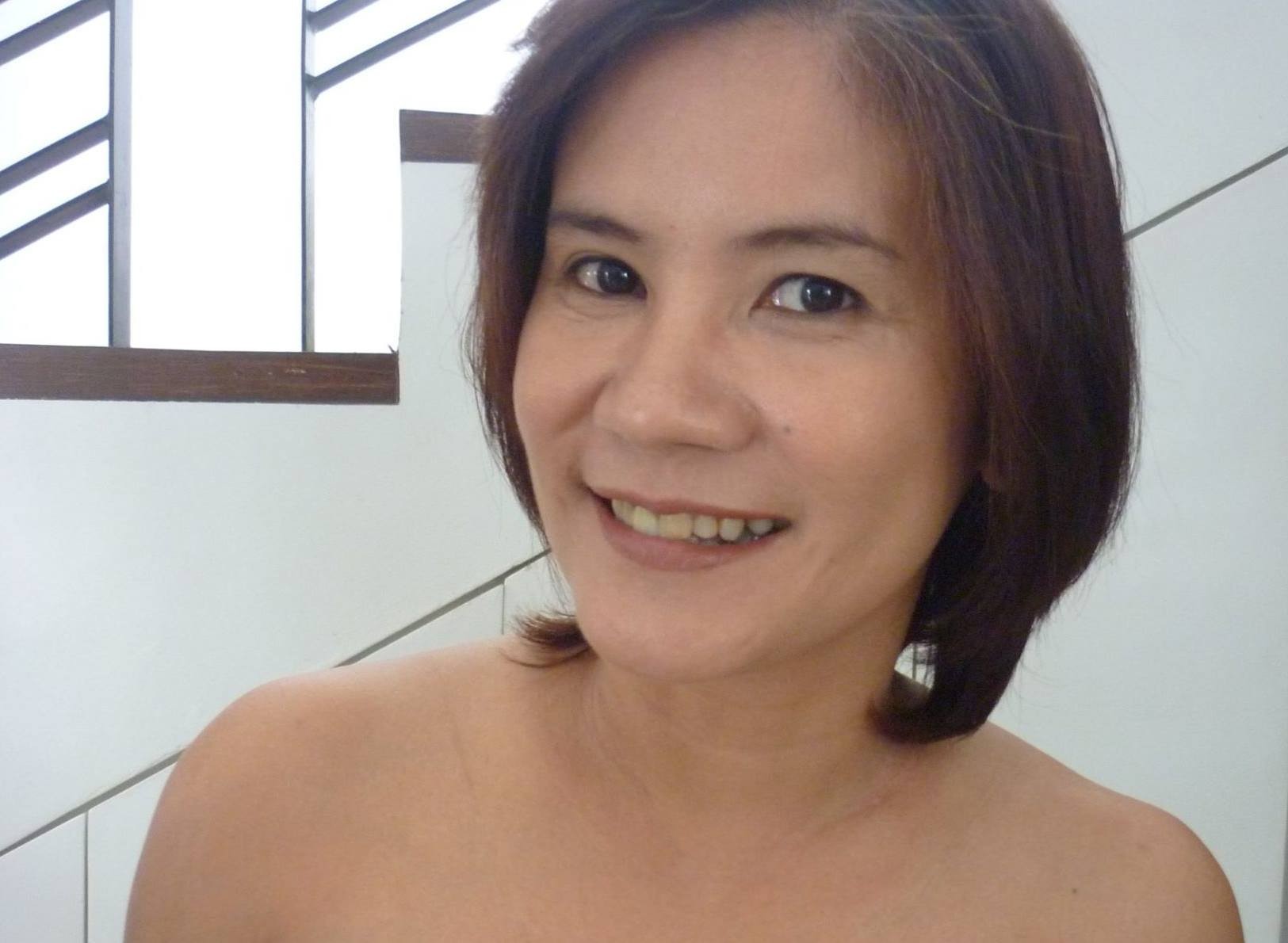
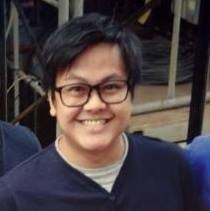
We are currently updating the members roster. Kindly update your membership with the AMP office by calling the secretariat at 02-410-3707
THE ASOSASYON NG MUSIKONG PILIPINO (AMP) POSITION PAPER ON HB 4218
The ASOSASYON NG MUSIKONG PILIPINO has always been working for the betterment of the Filipino musician. We welcome any and all help we can get in promoting, strengthening and safeguarding our rights as artists and our craft.
Rep. Teddy Brawner Baguilat filed HB 4218, also known as the “OPM DEVELOPMENT ACT OF 2014” and is currently the subject of debate from the different representations and concerned groups alike. The proposed bill aims to address of two major issues;
1. THE STRENGTHENING OF E.O. 255, BY PUTTING INTO LAW AN EXECUTIVE ORDER BY PRESIDENT CORAZON C. AQUINO IN 1987, INSTRUCTING BROADCAST ORGANIZATIONS TO PLAY FOUR (4) OPM SONGS PER HOUR, BY GIVING TAX CREDITS;
2. THE EQUITY FUND COLLECTED FROM FOREIGN ARTISTS WHO PERFORM IN THE COUNTRY, ITS ADMINISTRATION, COLLECTION AND DISTRIBUTION.
The association’s initial stand was a partial opposition to the bill, specifically the section concerning the EQUITY FUND, being one of two organizations currently collecting these funds directly. During the initial public hearing held last March 2, a recommendation by the Chairperson of the Committee on Basic Education and Culture, Rep. Kimi Cojuangco, was presented to all the parties concerned to immediately address the issues at hand, and to this recommendation we agree. That there should be two new separate bills that will address the two main concerns of HB4218. Thus effectively, dropping HB4218.
We share the wisdom of the chair in seeing that the issues presented in HB4218 can be broken down into two, given the weight of concerns to be tackled. With regards to the strengthening of E.O. 255, this new bill can be fast tracked and be prioritized, due to the fact that it is already in place and that discussions on the details of implementation, thru the creation of the Technical Working Group, can be presented and agreed upon by all the parties concerned. This new bill will not have to pass thru ways and means and appropriations and is considered the less complicated of the two issues and can therefore be passed immediately.
The issue on EQUITY however, demands a more thorough and extensive discussion. With a lot of parties concerned and has declared their interest on the matter, this will have to undergo a lot of deliberation and consultation to be able to draft a new bill that is acceptable. As previously stated, we at AMP strongly oppose the forming of a body that will collect, regulate and distribute the equity to be collected for the following reasons:
1. The National Committee on Music of the NCCA is not the proper agency to handle this
2. This move may promote red tape, palakasan or the padrino system and may encourage corruption within the system.
*A case in point for comparison is the Philippine Olympic Committee where most of its budget goes to the more popular sport or the bigger organization like basketball while sepak takraw will get only a small amount and is the least in terms of priority.
We strongly feel that the proposed committee, the National Committee on Music under the NCCA is not the proper agency to handle this. It is the Bureau of Immigration, who is mandated by law to supervise and control the entry and exit of all foreign nationals to and from the Philippines. It is also stated that under Section 3 of the Immigration Act grants the Bureau broad rule-making powers to issue such rules or instructions as may be best calculated to carry out the provisions of immigration laws, including restrictions or prohibitions on alien employment. They are also the agency that can issue a Special Working Permit to those who intend to work in the country.
On the other hand, The NCCA was created by virtue of RA 7356 to push forward the declared policies of the state that culture is a human right and to protect the nation’s cultural heritage, among many others. Under the NCCA are its Subcommissions whose functions are confined to assessment, consolidation, and coordination.
Currently, the system of collection of EQUITY is in place and is effective with the cooperation forged between our association and the Bureau of Immigration. We have in place our policy in effecting these collections. As part of the requirements in securing a Special Working Permit or (SWP) the producer would have to declare and file for a letter of endorsement from AMP for the foreign artists* they intend to bring in the country to perform. After AMP reviews and informs the applicant/producer of its exemption clause** to payment of equity, we assess the fee***. Upon payment of the fee, a letter of endorsement is then issued to the applicant/producer and is submitted to the B.I. for processing of a SWP.
*The MOA between AMP and B.I. is specific in terms of its coverage which are foreign musicians/instrumentalist, back-up singers and disc jockeys.
**If an equal number of Filipino musicians, back-up singers or disc jockeys (members and non-members of AMP) are employed to be part of the event applied for a SWP, equity fees are waived, and a processing fee of Php500 is charged for the endorsement letter to the B.I.
***Fee is the standard industry rate as set by the Asosasyon ng Musikong Pilipino and is computed times the number of heads to the number of shows to be done. Discounts and adjustments are also extended depending on the length of run.
A lot of questions have been raised as to the legality of this Memorandum of Agreement. Our MOA is not unique and is not the only agreement of its kind. The B.I. has analogous agreements with the Philippine Basketball Association on imported players (1997 BI-PBA Memorandum of Agreement on Hiring of Professional Basketball Players).
EQUITY AND THE ASOSASYON NG MUSIKONG PILIPINO
In 1998, the Asosasyon ng Musikong Pilipino or AMP as part of its mission to professionalize, uplift and assist the economic standing of the Filipino musician/instrumentalist, entered into an agreement with the then Bureau of Immigration and Deportation (BID) under Commissioner Rufus Rodriguez to coordinate with the former any and all foreign musicians/instrumentalists coming into the country to perform, the latter being the agency controlling the entry and exit of all foreigners in the country.
As part of the agreement, AMP was granted authority to collect EQUITY fees for every Filipino musician displaced by the employment of a foreign counterpart performing in the Philippines. In 2007, AMP or the Asosasyon ng Musikong Pilipino and the Organisasyon ng Pilipinong MangAawit or OPM together with the Bureau of Immigration renewed this Memorandum of Agreement reinforcing the authority of AMP to collect EQUITY from all foreign musicians/instrumentalists entering the country to perform.
As stated in MOA, AMP shall collect EQUITY from all foreign musicians/instrumentalist, DJ’s and back-up singers or vocalists. While OPM on the other hand shall collect from all foreign singers. The Bureau of Immigration, as part of the agreement signed shall issue the necessary SPECIAL WORKING PERMIT/S to the said foreign artists upon submission of clearances issued by AMP and OPM.
There has been much talk and debate regarding the EQUITY “issue” as of late from sectors of the industry, fellow musicians and artists alike who are questioning the collection of EQUITY, why and what it is for. Please allow me to present to you some key facts about AMP’s collection of EQUITY to give you a clear and better understanding of what and how EQUITY works, at least for AMP.
WHAT IS EQUITY?
Equity in its simplest form or as we use it is the payment or compensation by a foreign musician/instrumentalist who is to perform in the Philippines for a concert or a series of shows. The payment (in our case) is made by the producer/s of these shows and not by the foreign musician directly.
WHY DO PRODUCERS NEED TO PAY “EQUITY”?
AMP believes that for every foreign musician employed to perform here in the country, a Filipino musician is displaced. Hence, a form of compensation should be in place for this.
HOW IS “EQUITY” COMPUTED?
For every foreign musician employed, the standard and/or prevailing local session or show rate (as determined by AMP) shall be paid by the producer.
For example;
5 foreign musicians times Php 4,000.00 (current rate) = Php 20,000.00
This is also multiplied to the number of shows to be done;
Php 20,000.00 times 3 shows = Php 60,000.00
Upon payment by the producer of the fee computed, AMP then issues a clearance that the producer will include in his filing for a SPECIAL WORKING PERMIT with the Bureau of Immigration. Without this clearance, the BI shall not issue the permit.
CAN A PRODUCER BE “EXEMPTED” IN PAYING “EQUITY”?
YES! Based on the example above, EQUITY can be big depending on factors like number of musicians and shows, but there is a way to be exempted in paying this. From the beginning, AMP officers were careful in laying down its policy in collecting “EQUITY”. This is to ensure that it is fair not only for the local musicians but for the producers as well. Let me state the following for your information;
1. If Filipino musicians* of the same number are employed to perform for the show, either as back-up, augmentation or as front act, then “EQUITY” is waived and a minimal fee of Php500 is to be charged for filing and clearance fees.
2. If the show to be presented is classical in form or as a cultural exchange between countries, “EQUITY” is waived and a minimal fee of Php500 is to be charged for filing and clearance fees.
3. Upon application by the producer/s, AMP informs them of these rules for their information and consideration.
In the first item, it is here that we see the primary objective of collecting “EQUITY”. Please note that the policy states “Filipino musicians”. We do not impose that producers employ AMP members only. Every Filipino musician has this opportunity to be employed regardless of instrument or classification. Producers may also consider employing local musicians instead of bringing in foreign musicians which will save them money from higher rates, travel, board and lodging expenses. However, this depends on the main artist or if they are members of a band and/or is the producer’s decision on how his business venture will generate the most profit.
The second item recognizes the difficulty in presenting concerts or shows in classical nature. This involves for example, Chinese musicians playing their native instruments and music or the New York Philharmonic Orchestra playing Beethoven, Bach or Strauss where interest from the local viewing public is next to none and attendance is very low.
AMP made it clear that we only collect from the following;
1. musicians/instrumentalists
2. back-up vocalist – back-up vocalists have joined the ranks of AMP as they are considered session artists, with their vocals as instruments
3. Disc Jockeys- with the onset of electronic music, Disc Jockeys are now considered as instrumentalists, producing music with their turntables as their instruments.
AMP does not and will not collect fees other than the ones stated above.
WHO BENEFITS FROM THE “EQUITY” SYSTEM?
This is the question that I am sure everyone is waiting to be answered and I will only state the ones involving AMP and musicians as a whole.
Every Filipino musician benefits from this system, both AMP member and non-member. Remember our policy that states “Filipino musicians”? It is to be noted that thru the years, producers have learned their way around paying “EQUITY” by employing local musicians, most of which are NON-AMP MEMBERS. We are VERY strict with this rule. As long as local musicians are employed, producers do NOT have to pay. Our office has noticed a steady decrease in “EQUITY” payments due to the employment of local musicians. EQUITY now not only works as a compensation tool for “displaced” musicians but is also creating job opportunities for all of us.
For members, hospitalization and funeral assistance is extended. An office staff is employed to look after the needs of members. We negotiate with companies to give our members the best and lowest group insurance rates, discounts in acquiring musical instruments and supplies, dental services, vehicle maintenance, etc. Should the need for legal representation arise, AMP shall assist and provide for its members. For cases of dispute between member and employer/producer, AMP can also mediate.
This is how AMP puts the EQUITY FUND into action. Although it is not a direct monetary compensation to members, it is through service and benefits that all musicians can enjoy. More so, as a member.
ACCOUNTABILITY
It is important to note that AMP officers, executive committee and board members serve WITHOUT pay, salaries and allowances. All our documents and duties, like taxes and permits are up to date. We submit and file to the BIR our yearly financial statement diligently.
RECOMMENDATION
We therefore recommend that the current system of equity collection remain but with strict compliance to policies and jurisdiction. Jurisdiction is very important at present due to the variety of artists that come to the country. It was much simpler then when we would only have to contend with foreign singers or musicians/instrumentalists. Now we have theatre actors, dancers, magicians, etc. We propose that a body be formed by groups independent to both the OPM and AMP, enter into an agreement with the B.I., to specifically handle the equity collections for this sector of artists not covered by OPM and AMP and that the fund be divided amongst these groups for funding and to address their needs. We also recommend that we use the term Filipino Artist as the collective term instead of musicians which is very specific and can pertain to a particular sector only.
May we also take this opportunity to ask the committee to consider the forming of a DEPARTMENT OF CULTURE that will address Article XIV, Section 15 of the 1987 Philippine Constitution which provides that “Arts and Letters shall enjoy the patronage of the State. The State shall conserve, promote, and popularize the nation’s historical and cultural heritage and resources, as well as artistic creations.”
LET US DROP HB4218 IN FAVOR OF TWO NEW BILLS THAT ARE MORE SPECIFIC IN SCOPE AND WITH PROPER CONSULTATION FROM ALL CONCERNED PARTIES.
Mabuhay Ang Musikong Pilipino
Ernani “JONG” M. Cuenco, Jr.
Kindly check out under the Member’s Corner tab, rates, the official rates for the Christmas Season for your guidance.
Tomorrow September 5, 2014 at the Ayala Triangle Garden, we shall witness a milestone in the local music industry as we witness the gathering of all the leading music organization in one goal. #palakasinangopm
AMP shall be represented by the AMP Big Band for the culminating event/concert slated to start at 7pm and is free to the public. Show your support for our local music, musicians and artists by being a witness to this grand event.
AMP Secretariat shall be on-site to assist any professional musician who wishes to sign up and become a member of AMP. We hope to see you there.
Dear Members,
We are announcing that the AMP Secretariat shall be calling you to find out if you are enrolled with PhilHealth or not. Should you wish to be enrolled with PhilHealth, we would appreciate it very much if you could call the AMP office at (02-410-3707), look for Mely for more details regarding this. We hope to hear from you. Thank you very much at mabuhay po ang Musikong Pilipino.
JONG CUENCO
Chairman and President
AMP Big Band Leader Mel Villena presents a certificate to Mr. Edsel Gomez inducting the later as HONORARY MEMBER of the Asosasyon ng Musikong Pilipino at Balete @ Kamias.

Musikong banyaga, pusong Pilipino. Mabuhay ka.
2007 Grammy award nominee Edsel Gomez is today one of the premier Latin Jazz pianists in the world. Born in Puerto Rico in 1962, he began piano studies at age five. He grew up in a musical environment that allowed him to master afro-Caribbean rhythms in depth, working since childhood with an incredible array of Latin music idols such as Marvin Santiago, Celia Cruz, Carlos “Patato” Valdes, Santitos Colon, Cheo Feliciano, Roberto Roena, Willie Colon, Ismael Rivera Jr., Luis “Perico” Ortiz, Olga Guillot, Lola Flores, Marco Antonio Muñiz, among many others.
He gained a Bachelor of Music Degree at Berklee College of Music with a Count Basie Award for outstanding musicianship in 1985 while expanding his performance credits working with such renown Jazz artists as Gary Burton, Claudio Roditi, Bill Pierce, Don Byron, Chick Corea and Jerry Gonzalez among many others.
Relocated to Brazil from 1986 to 1996 he studied extensively Brazilian Music and worked accompanying such renown artists as Cauby Peixoto, Wilson Simonal, Paulinho da Viola, Amelinha, Caetano Veloso, Joao Bosco, Lucinha Lins, Angela Maria and Trombonist Raul de Souza, recording de Souza’s “The other side of the moon” (BMG,Brazil). Within the Brazilian landscape he worked as a Pianist, Arranger, Composer, Conductor/Musical Director of Broadway-like shows, educator, producer and managed his own recording studio/production company. Within a short time, most Brazilian musicians considered him “one of ours.” Gomez’s personal approach to fusing jazz, Latin and Brazilian music gives him a unique personality and musical voice.
Since relocating to New York in 1997, he has been featured in saxophonist David Sanchez’s “grammy nominated” albums, “Obsesion”, ”Melaza”, “Travesia” -(Sony/Columbia.) and a fourth, the new “Coral” -LATIN GRAMMY WINNER (with the Prague Radio Symphony Orch); Clarinetist Don Byron’s “Tuskeegee Experiments” (Electra/Nonesuch,1994) “Music for six musicians” and “You are number six”(Blue Note); Richard Bona’s “Scenes from my life” and “Reverence” (Sony/Columbia) and has toured extensively around the world. Edsel has released an album dedicated to the music of Chico Buarque (Celebrating Chico Buarque de Hollanda, 1999, on Mixhouse, Brazil) and recorded a new album, Cubist Music -(Zoho Music,2006, produced by Don Byron), featuring Edsel’s original compositions reflecting his own improvisational concept based on Cubist Art, performed by a stellar group comprised of Clarinetist Don Byron, saxophonists David Sanchez, Steve Wilson, Greg Tardy, and Miguel Zenon, bassist Drew Gress and Drummer Bruce Cox.
Edsel works around the world as Dee Dee Bridgewater’s pianist/arranger, along with new proyects that include Jack DeJohnette’s “Latin Proyect” featuring Giovanni Hidalgo, Don Byron, Luisito Quintero and Jerome Harris; Conrad Herwig’s “Latin side of Miles” (“Another Kind of Blue-Live at the Blue Note”-Half note records and “The Latin Side of Coltrane”-Criss-Cross) featuring Paquito D’Rivera, Dave Valentin, Brian Lynch, Richie Flores, Mario Rivera, Robbie Ammeen and John Benitez, and a collaboration with Vocalist Janis Siegel.
AMP/OPM on B.I.D Memorandum of Agreement From Atty. Pablito Perez
The Memorandum of Agreement with the Bureau of Immigration and Deportation (“BID”) enforcing the equity system of OPM and Amp is valid and enforceable on the following grounds:
1.The 1987 Constitution directs the State to extend its patronage over arts and letters.
1.1 Article xiv, section 15, “Arts and letters shall enjoy the patronage of the State. The State shall conserve promote, and popularize the nation’s historical and cultural heritage and resources as well as artistic creations”.
2. The BID has plenary powers to regulate the entry of foreign artists and professionals.
2.1 The entry and admission of foreigners for whatever purpose is a mere privilege, not a demandable right.
2.2 Section 3 of the Immigration Act grants the BID broad rule-making powers to issue such rules or instructions as may be best calculated to carry out the provisions of immigration laws, including restrictions or prohibitions on alien employment.
3.Regulation of entry to the practice of various trades or professions is a valid exercise of police power. (JMM Promotion and management Inc. et. Al vs. Court of Appeals, G.R. No. 120095, August 5, 1996)
3.1 Police power means the power to promulgate law, rules and regulations for the public good.